Are you planning a trip to Greece and wondering if there are sharks in the ocean? The answer is yes. However, it’s rare to see them, and the species are mostly non-dangerous. In this article, I will describe in detail all the sharks living in Greece and their threat level.

Which Sharks Are There in Greece?
Although the chances of encountering sharks in Greece are rare, there are still several species of these apex predators that you might come across while swimming in its clear waters. Here are some of the most common sharks found in Greece:
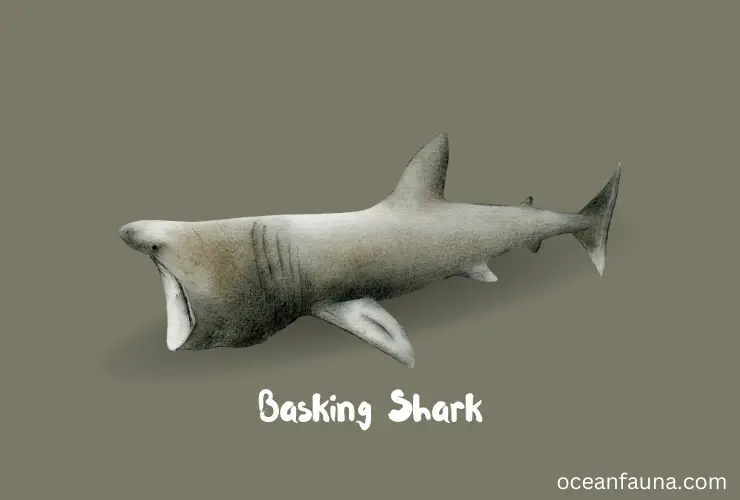
Basking Shark
The basking shark is the second-largest living fish (after the whale shark) and can be spotted in the Mediterranean off the Greek coast. Despite its large size, the basking shark is a gentle giant that feeds mostly on plankton and small fish. It is a filter feeder that swims with its mouth open and filters water to extract food.
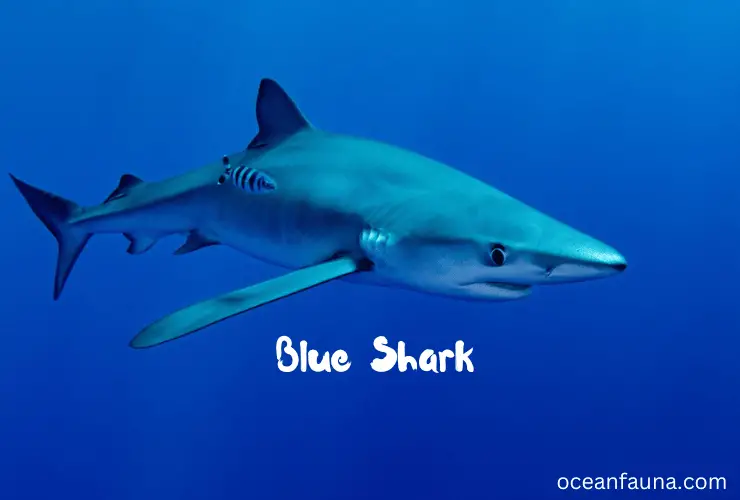
Blue Shark
The blue shark is a long and slender shark with distinct blue coloration on its back, hence its name. It can grow up to 3.8 meters long and is found in the open ocean near the Greek islands. Although the blue shark is not aggressive towards humans, it can become curious and approach divers.
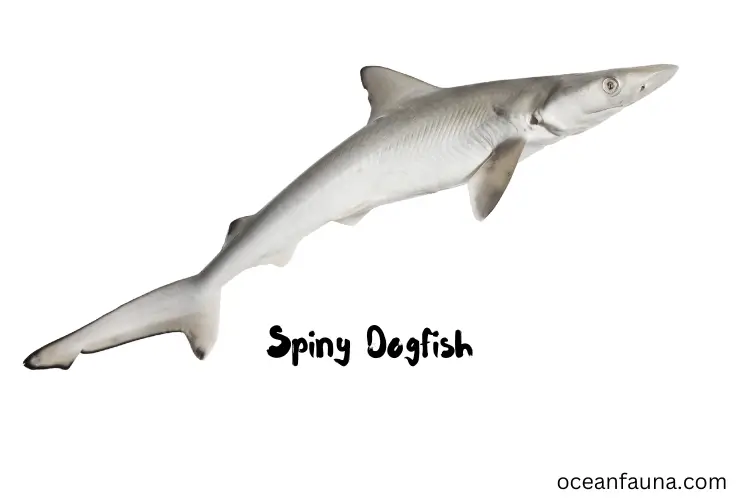
Spiny Dogfish
The spiny dogfish is a small shark that is commonly found in the Aegean Sea. It is a bottom-dweller that feeds on small fish and crustaceans. Despite its small size, the spiny dogfish is known for having sharp spines on its back that can injure humans who handle them.
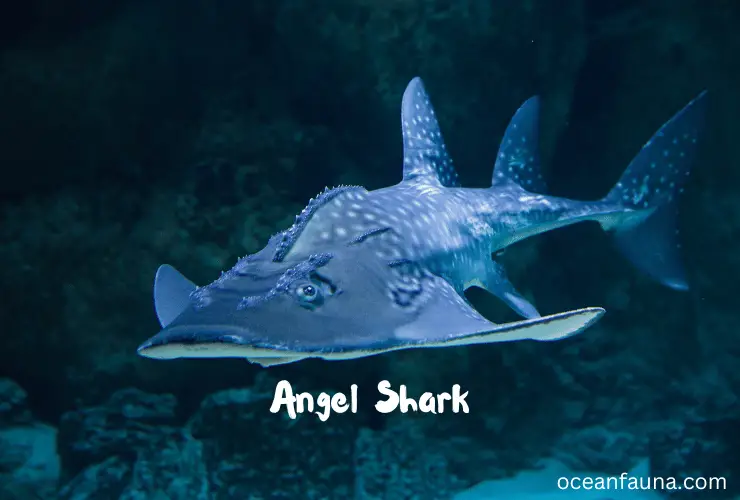
Angel Shark
The angel shark is a bottom-dwelling shark that is rarely seen in Greece. It has a flattened body and fins that resemble wings, which is how it earned its name. The angel shark feeds on small fish and crustaceans and can grow up to 2 meters long.
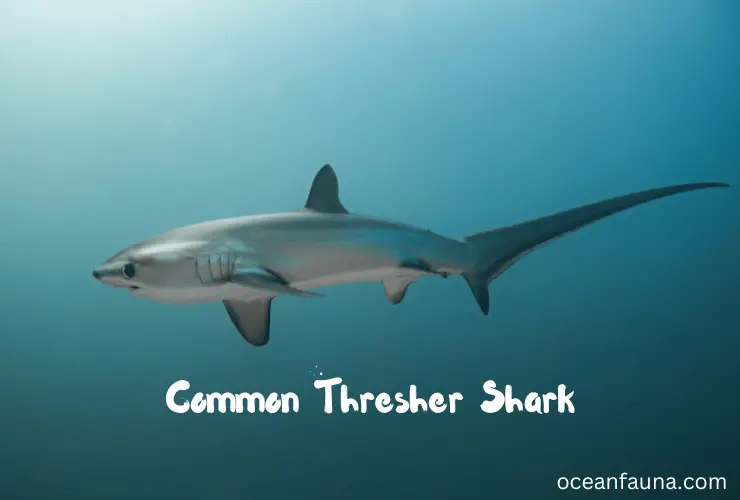
Common Thresher Shark
The common thresher shark is a large pelagic shark that is found in the open sea near the Greek coast. It is easily recognizable by its elongated caudal fin, which it uses to stun its prey. The common thresher shark feeds on small fish and squid and can grow up to 6 meters in length.
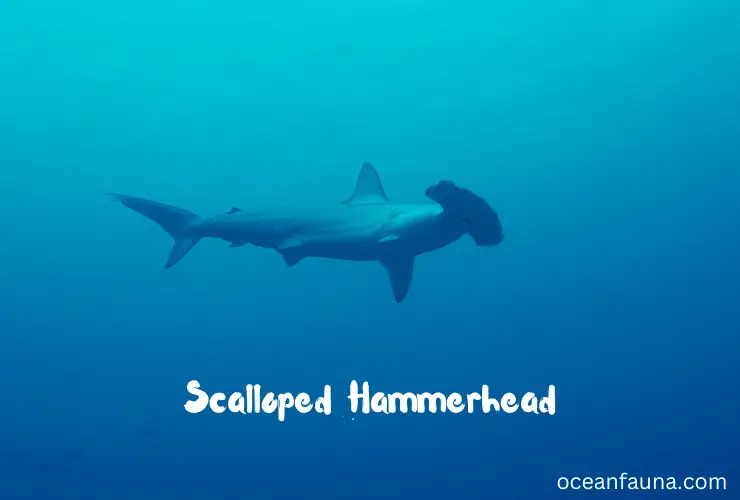
Scalloped Hammerhead
The scalloped hammerhead is a distinctive-looking shark with a rounded head that has flattened extensions on either side (called cephalopods). It can grow up to 4 meters in length and is found in the Mediterranean near Crete. The scalloped hammerhead feeds on small fish, squid, and crustaceans.

Smalltooth Sand Tiger
The smalltooth sand tiger is a rare shark that is sometimes sighted in Greek waters. It is a deepwater shark that can grow up to 3 meters long and has a distinctive appearance with a long snout and exposed sharp teeth. The smalltooth sand tiger feeds on squid and small fish.
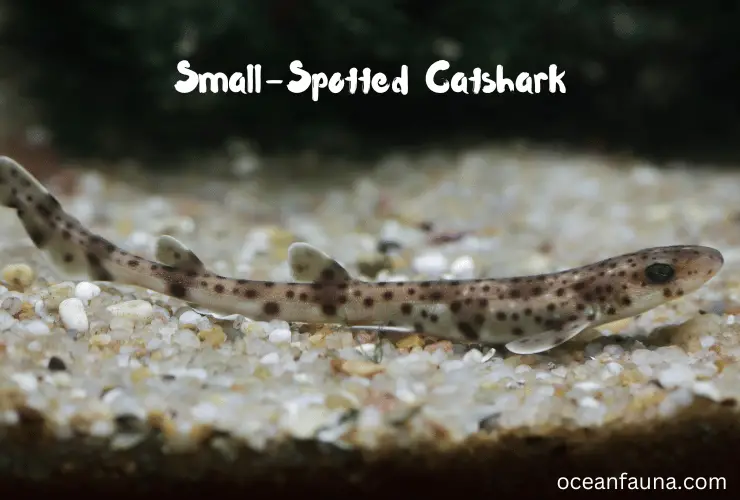
Small-Spotted Catshark
The small-spotted catshark is a small, bottom-dwelling shark that is found in the Aegean Sea. It has distinctive black spots on its body and can grow up to 80 centimeters in length. The small-spotted catshark feeds on small fish and crustaceans.
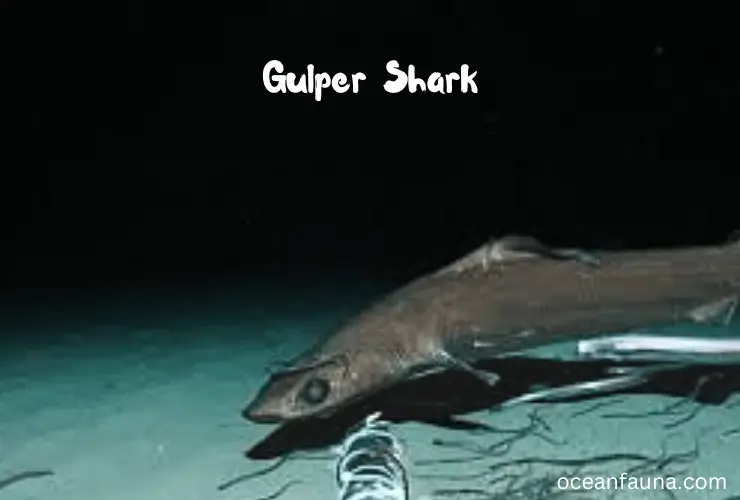
Gulper Shark
The gulper shark is a deepwater shark that is rarely seen in Greek waters. It has a large mouth and can swallow prey larger than its own body size. The gulper shark feeds on squid and deep-sea fish and can grow up to 3 meters long.
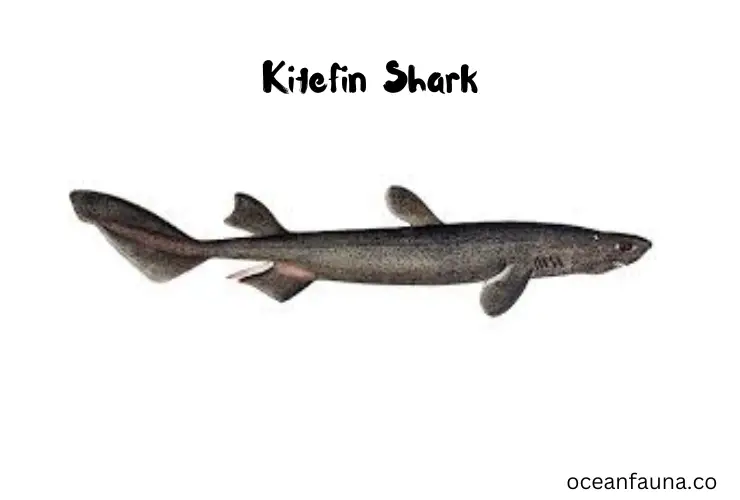
Kitefin Shark
The kitefin shark is a deepwater shark that is sometimes caught in the Aegean Sea. It has a slender body and can grow up to 1.5 meters in length. The kitefin shark feeds on deep-sea fish and squid.
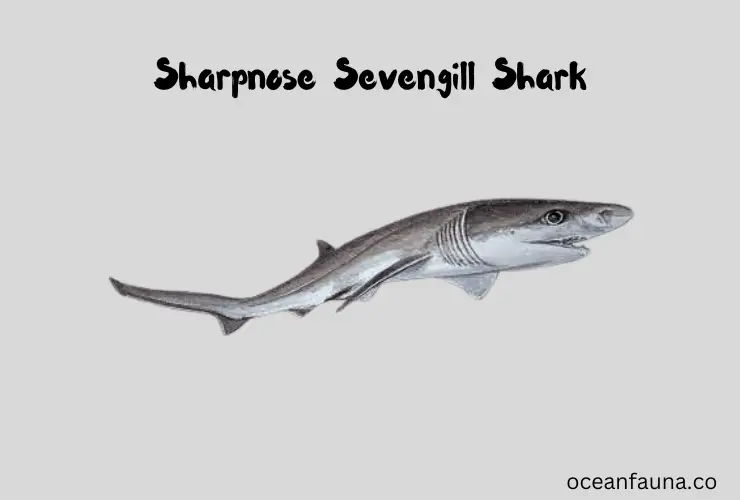
Sharpnose Sevengill Shark
The sharpnose sevengill shark is a bottom-dwelling shark that is found in the Aegean Sea. It has seven distinct gill slits and a distinctive sharp snout. The sharpnose seven-gill shark feeds on small fish and crustaceans and can grow up to 2 meters in length.
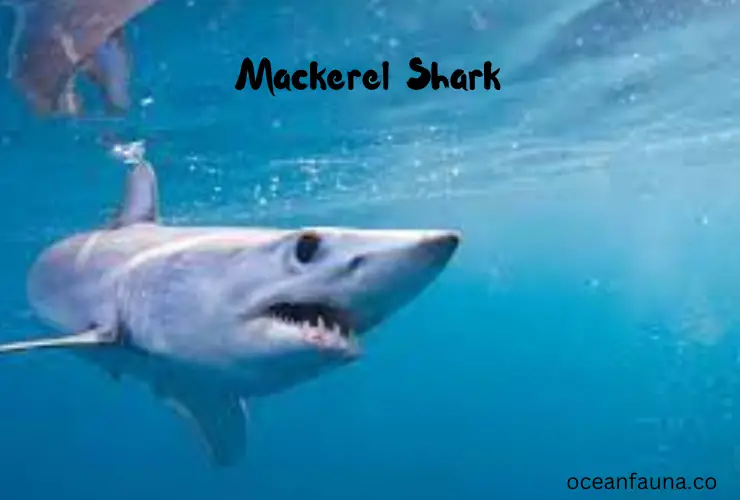
Mackerel Shark
Mackerel sharks are a family of sharks that includes several species commonly found in Greek waters, such as the porbeagle. These sharks are pelagic and feed on small fish and squid. They can grow up to 4 meters in length and are often caught by fishermen for their meat and fins.
Are There Great White Sharks in Greece?
Yes, there are Great White Sharks in Greece, but they are not commonly found in the coastal waters. These sharks usually inhabit deep waters and stay away from the shore. Although there have been occasional sightings and encounters, they are extremely rare in Greek waters.
The Great White Shark (Carcharodon carcharias) is a species of large shark found in the major oceans worldwide. They are known for their strong predatory skills and powerful jaws, making them one of the most feared predators in the ocean.
The Great White Shark is not commonly found in Greek waters despite its global presence. This is because of the specific environmental and ecological conditions that these sharks prefer. The shallow and warmer waters around the Greek coast are not ideal for Great White Sharks, as they are adapted to colder, deeper waters.
Additionally, the Great White Shark is a migratory species, and they tend to move between different regions in search of prey and suitable breeding conditions. Greece is not a primary location for their feeding or mating, so they tend to stay away from the area.
Furthermore, several conservation efforts in Greece aim to protect marine wildlife and maintain a sustainable ecosystem. These efforts include the establishment of marine protected areas and the implementation of fishing regulations. These conservation efforts may also play a role in the reduced presence of Great White Sharks in Greek waters.
Why Are Sharks Rare in Greece?
Greece is a country surrounded by marine waters with rich biodiversity. Although sharks are present in the waters surrounding Greece, they are relatively less visible. Here are some reasons why:
Deep Waters
Sharks are primarily located in the deeper parts of the sea. Thus, they are less visible to the humans inhabiting the shallower waters of Greece. Additionally, sharks are known to migrate across oceans. They are most likely to move to other waters if they are not finding enough prey or if their habitat is threatened.
Overfishing and Habitat Destruction
Sharks have been hunted for their meat, fins, and oil for centuries. This has led to a decline in the number of sharks in the waters surrounding Greece.
Moreover, habitat destruction caused by human activities such as pollution and coastal development has further contributed to the loss of the shark population.
Misconceptions and Misunderstandings
Sharks are often perceived as dangerous creatures that pose a threat to humans. While it is true that shark attacks happen, they occur very rarely. Thus, people tend to avoid going to areas where sharks are known to inhabit, which could further reduce the number of sightings.
On the other hand, people may also actively endorse the killing of sharks based on these false beliefs.
Lack of Research
Little is known about the shark species that inhabit the waters surrounding Greece. Limited research on the sharks’ feeding and migratory patterns, population size, and behavior has made it difficult for conservationists to develop strategies to protect these animals.
Thus, a comprehensive study of the sharks inhabiting Greek waters would go a long way toward understanding the challenges faced by these creatures.
Are There Any Shark Attacks in Greece?
According to research, shark attacks are uncommon in Greece. Although potentially hazardous shark species, including the Great White Shark, are found in Greek waters, encounters with them are rare. Additionally, most of the sharks observed near beaches are not dangerous.
Historical studies report that shark attacks in Greece were primarily documented in the mid-20th century, in which the Great White Shark was the most commonly involved species when identification was established.
Nevertheless, over the 180 years examined in the research, there were only 15 recorded shark attacks in Greece, indicating that shark attacks are not common in the country. Therefore, visitors and locals should not be overly concerned about the risk of encountering a shark while swimming in the waters of Greece.
However, it is always important to take appropriate precautions, such as avoiding swimming in areas with a high concentration of fish or blood.
Diving with Sharks in Greece: Best Time to Come
Diving with sharks in Greece is an unforgettable experience. If you’re looking for an adrenaline-packed adventure, this is the perfect activity. When planning your trip to Greece, it is essential to keep in mind that summer is the best time to go shark diving.
There are various species of sharks that you can encounter in Greece. For instance, the blue shark is one of the most commonly sighted sharks in Greece. The blue shark is a harmless species, having a unique torpedo-like shape that allows them to move through the water with incredible speed and agility. These sharks usually inhabit open-water areas, making them the perfect option for scuba divers.
Another type of shark that you can find in Greece is the thresher shark. These sharks are rare to encounter but are definitely worth the effort. They have a long tail that they use to stun schools of fish to feed on. They are also known to interact with divers and are not considered harmful as long as they are not provoked.
The best months to dive in Greece with sharks are from July to September. During this time, the water temperature is at its highest, and the weather is perfect for diving. If you want to have a higher chance of spotting sharks, you should head to the Cyclades. This region has a reputation for being a hotspot for shark sightings.
When it comes to scuba gear, wear a 5 mm wetsuit. The water temperature during the summer months usually ranges between 22 and 25 degrees Celsius, which can be cold for some people. Therefore, wearing a wetsuit will help you stay warm and comfortable during the dive.
Finally, the best way to reach the best dive sites in Greece is by boat. Most dive centers offer boat trips to the best locations, allowing you to fully experience the beauty of the underwater world from a different perspective.
Conclusion
You now have extensive information on all the shark species that inhabit Greece. If you seek an exhilarating experience, scuba diving with sharks in Greece is ideal.
Remember that summer is the optimal time to spot sharks, and the Cyclades area is a popular spot for observing them.
Follow all the guidelines provided here to make the most of your diving experience, and remember that sharks are not dangerous as long as they are not provoked. Enjoy your trip to Greece!

1 thought on “Are There Sharks in Greece? [Explained]”